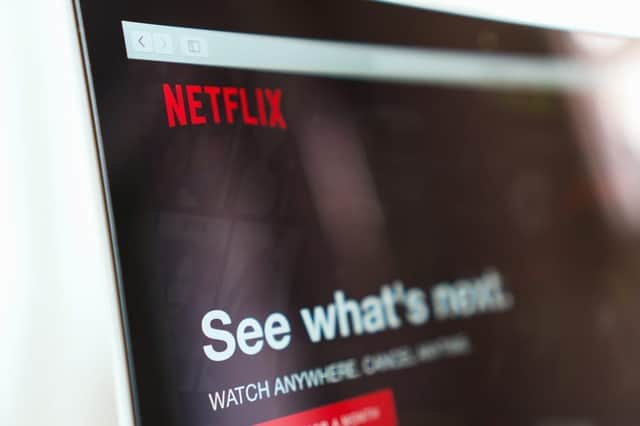A quarter of 18-24 year olds have Netflix subscription paid for by parents


The bank of mum and dad once stretched to the occasional pocket money treat but new research has revealed parents are also picking up the bill for cash strapped ‘kidults’ by paying for Netflix, Deliveroo, Spotify and Uber services.
The latest research from price comparison website MoneySupermarket has revealed that over a quarter (27 per cent) of 18-24 year olds have had Netflix subscriptions paid for by their parents.
Advertisement
Hide AdAdvertisement
Hide AdOver a tenth (13 per cent) of 18-24 year olds revealed their parents have paid for their Deliveroo, whilst 10 per cent have had their Spotify streaming services paid for.
Six per cent have even had their Uber taxis paid for by parents.
Increased living costs are being credited for the continued financial support of parents well into their offspring’s adulthood. Sally Francis-Miles, money expert at MoneySuperMarket, comments: “With living costs rocketing, it isn’t surprising that adult-children are finding it difficult to be completely independent and afford their monthly rent and bills, let alone their lifestyle expenses.
“However, while sharing a Netflix subscription is a cheaper way to do it, holidays and often clothes are no doubt luxuries. The data shows that instead of adult-children making sacrifices and altering their lifestyle, parents are plugging the gap to maintain it, which can in turn leave them stretched.” In addition to the non-essential services paid for by parents it was also revealed that a fifth of parents (19 per cent) also pay rent or mortgage for their grown up children.
Advertisement
Hide AdAdvertisement
Hide Ad“For parents feeling the squeeze, doing an audit of your finances can give you back control. Establish where you can and can’t help and look at ways you can make easy savings - on household bills for example. Whether it’s insurance, energy or a credit card, shopping around for the best deal can save you money and may also encourage your adult-children to do the same, giving them more tools for independence in the long run.”